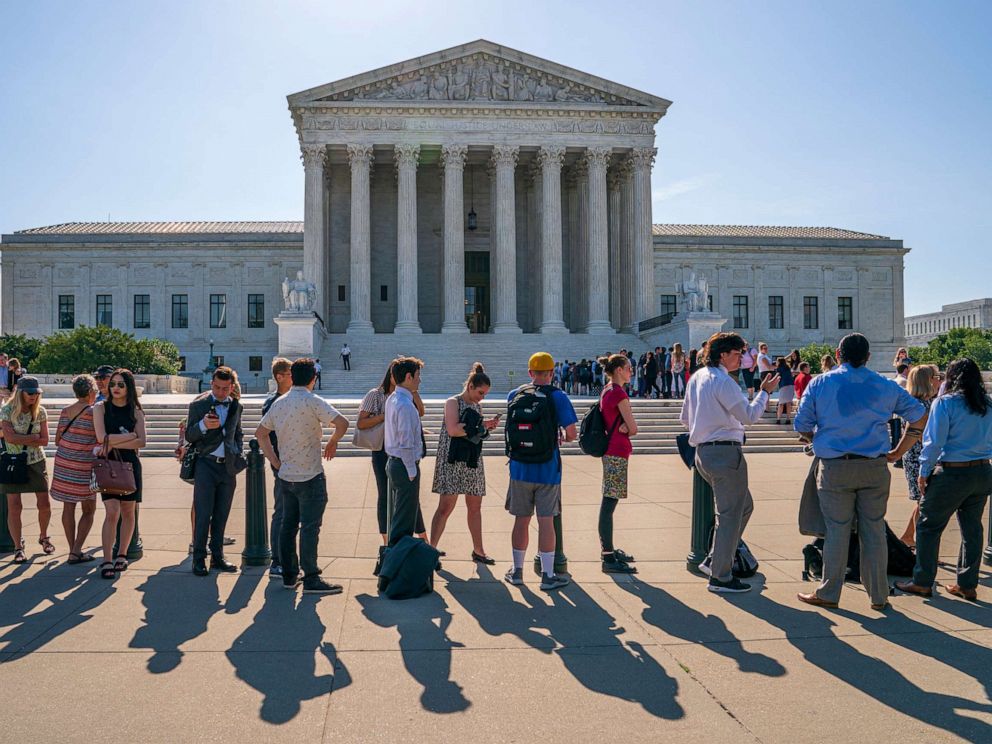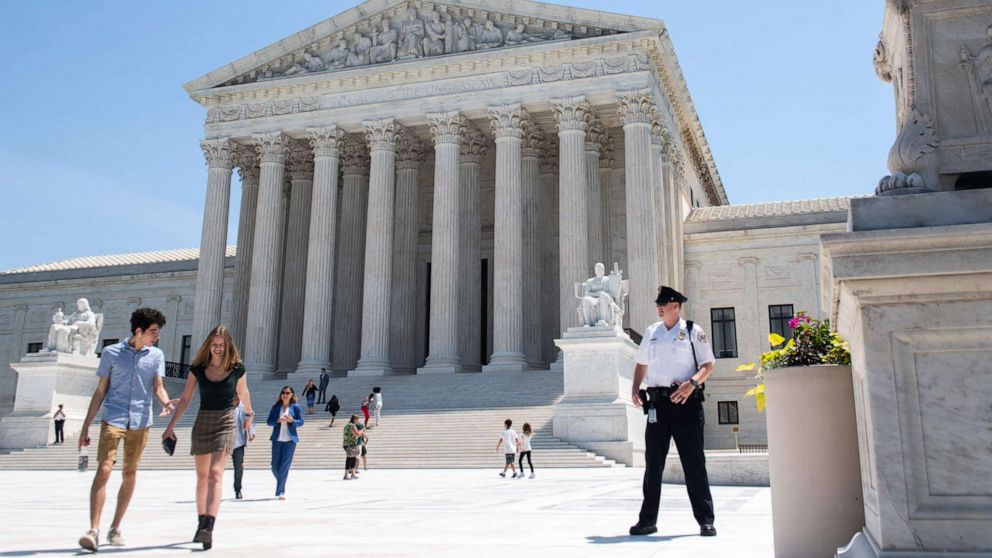[ad_1]
The Supreme Court on Monday dealt a blow to advocates of greater access to public information, ruling in a 6-3 decision that the government does not have to turn over private food stamp data it obtained from grocery stores to a South Dakota newspaper.
Interested in Supreme Court?
Add Supreme Court as an interest to stay up to date on the latest Supreme Court news, video, and analysis from ABC News.
The paper, the Argus Leader, had filed a Freedom of Information Act (FOIA) request with the U.S. Department of Agriculture seeking the names and addresses of all retail stores that participate in the Supplemental Nutrition Assistance Program, or SNAP, and each store’s annual redemption data. The FOIA request did not involve any identifying information about food stamp recipients or how they used the federal government benefit.
The paper argued that it’s in the public’s interest to know how government spends tax dollars. But the retailers, represented by the industry group Food Marketing Institute, objected to release of the information, which it calls “confidential” and only shares with USDA under an expectation of privacy.
FOIA exempts disclosure of “trade secrets and commercial or financial information obtained from a person and privileged or confidential.”
Lower courts have interpreted the the statute as also requiring an objector to show “competitive harm” with the release and ruled in favor of the paper.
Justice Neil Gorsuch, writing for the majority, reversed that decision, saying that “at least where commercial or financial information is both customarily and actually treated as private by its owner and provided to the government under an assurance of privacy, the information is ‘confidential’ within the meaning” of the law.
 J. Scott Applewhite/AP
J. Scott Applewhite/AP
“Small business owners expect privacy when it comes to their confidential information and the Supreme Court’s decision today reaffirms just that,” said Karen Harned, executive director of the National Federation of Independent Business, which filed a brief supporting the retailers.
Justices Stephen Breyer, Ruth Bader Ginsburg and Sonia Sotomayor dissented in the case.
“The whole point of FOIA is to give the public access to information it cannot otherwise obtain,” Breyer wrote. “And given the temptation, common across the private and public sectors, to regard as secret all information that need not be disclosed, I fear the majority’s reading will deprive the public of information for reasons no better than convenience, skittishness or bureaucratic inertia.”
Argus Leader news director Cory Myers lamented the court’s decision, saying in a statement posted by the paper on Twitter, “This is a massive blow to the public’s right to know how its tax dollars are being spent, and who is benefiting.”
[ad_2]
Source link

